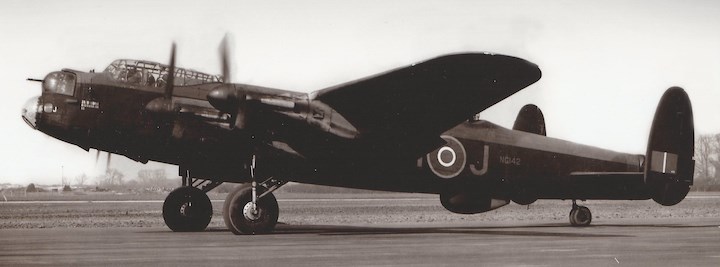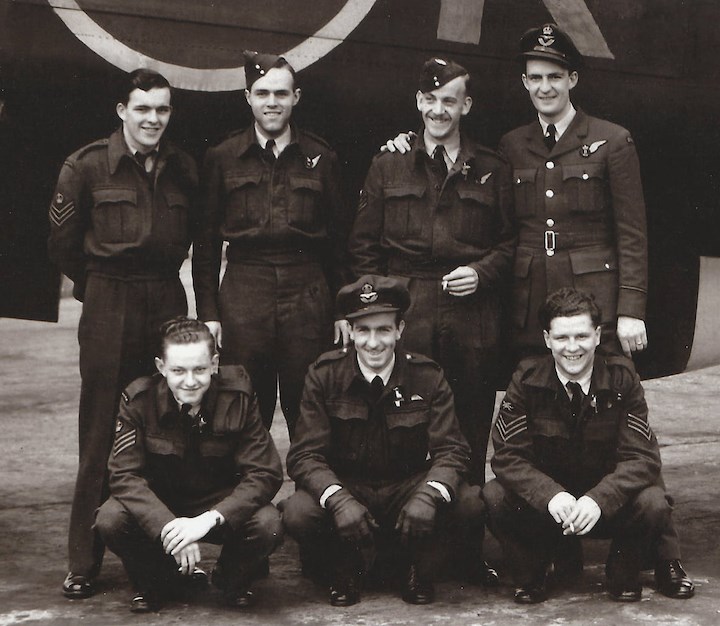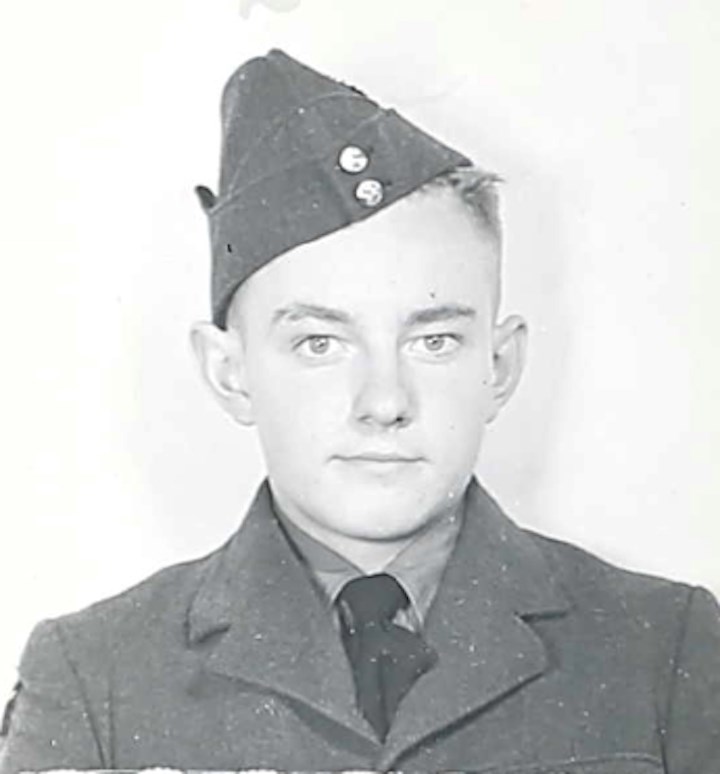As part of our Sarnia Remembers series — now in its eighth year — The Journal is publishing a series of stories this week, honouring veterans and fallen soldiers from Sarnia-Lambton.
 By Tom St. Amand and Tom Slater
By Tom St. Amand and Tom Slater
In northeastern France, Pilot Officer Air-Gunner Orval Evers and his five crew members readied their Lancaster bomber for today's mission.
It was Wednesday, May 9, 1945, and Evers was in good spirits.
The previous day, Germany had officially surrendered and with the war in Europe over, Evers' crew had celebrated VE Day in England.
However, the crew still had work to do.
Today's sortie in ideal flying conditions would be short, safe, and straightforward: they were to fly 24 liberated POWs from Juvincourt Airfield in northern France to RAF Waterbeach near London. This was part of Operation Exodus that eventually repatriated over 350,000 ex-POWs to their home countries. Many of these young men were sick, starving, and wounded, so they needed help and quickly.

The two dozen British soldiers who boarded Lancaster RF 230 at noon were anxious to get home.
They were in good hands. As part of RAF Bomber Command, the crew of Lancaster RF 230 was experienced and skilled. Since November 1943, the 514th Squadron had dropped nearly 15,000 tons of bombs in 220 raids but at the cost of 88 lost aircraft and the deaths of 437 airmen.
Evers' crew had survived several harrowing experiences through skill and luck and facing death on each mission had inevitably forged and strengthened the bonds of their friendship.
5' 4” Orval Evers was popular among his mates who affectionately called him “Shorty.” The personable and capable Sarnian was, according to his Recruiting Officer, “very enthusiastic . . . Good air-gunner material.”
Orval had proved him correct and had become a competent gunner.
He had moved to Sarnia from Kitchener with his family in 1942, when Polymer (now ARLANXEO) opened. His father, Charles, found work at Polymer and his mother, Susan, cared for their son and three daughters at their home in Oakwood Corners (Colborne and Lakeshore area).
In late September 1943, Evers, age 18, left his job as a press operator at Electric Auto-Lite in Point Edward to enlist with the RCAF.
After extensive training in Canada and in England, Evers joined the 514th Squadron in December 1944 with the rank of Pilot Officer-Air Gunner. When VE Day was declared, he had 11 flights to complete his tour of operations.
On May 9, 1945 at 12:15 local time, RAF Pilot Officer Donald Beaton, 22, guided his Lancaster RF 230 down the runway.
Soon after take-off, Beaton, an experienced pilot, reported problems with the controls and looked to land at Roye Ami Airfield, only 80 kilometres from Juvincourt.
Eyewitnesses confirmed that Beaton circled the airfield twice. On his second approach, Beaton had lowered the Lancaster's undercarriage to prepare to land.
Then inexplicably and tragically, the Lancaster dipped into a vertical bank to port with her nose up before going into a flat spiral and levelling out just above some trees.
Shocked ground crews watched the Lancaster lose altitude and heard it crash. It burst into flames on impact, killing all 30 men aboard instantly.
The time was 12:26.

An inquiry surmised that when a forced landing was imminent, the 24 men who had been positioned properly had then moved instinctively to the rear of the aircraft to be nearer the exit doors.
When Sgt. Beaton lowered the bomber’s flaps, the weight of two dozen men at the rear of the aircraft prevented him from keeping the nose of the aircraft down. This resulted in a stall and a spiral that caused the Lancaster to crash in a forest near the runway.
At the height of Operation Exodus, the repatriation aircraft from Europe were arriving in England at a rate of 16 aircraft per hour, bringing more than 1,000 ex-POW’s a day. The fatal crash of Lancaster RF230 was the only aircraft lost in the Exodus operation.
Orval Evers, 19, is buried with other victims of the crash in Clichy Northern Cemetery, France. His is a collective grave, shared with 11 others, but each soldier has his own headstone. Inscribed on Orval’s are these words: WE CANNOT, LORD, THY PURPOSE SEE BUT ALL IS WELL THAT’S DONE BY THEE.
If life were fair, World War II wouldn’t have ended this way for Orval Evers.
But as Canadian writer, Gilbert Parker, aptly observed, “War is cruelty, and none can make it gentle.”
St. Amand and Slater are the authors of Valour Remembered: Sarnia-Lambton War Stories, available at The Book Keeper. Read more here: New book pays tribute to Sarnia’s fallen war heroes





